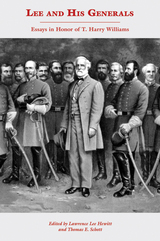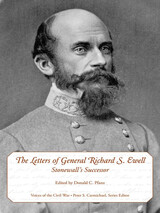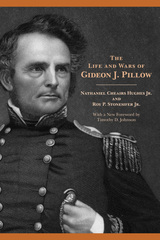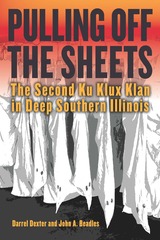3 start with L start with L

A legendary professor at Louisiana State University, T. Harry Williams not only produced such acclaimed works as Lincoln and the Radicals, Lincoln and His Generals, and a biography of Huey Long that won both the Pulitzer Prize and the National Book Award, but he also mentored generations of students who became distinguished historians in their own right. In this collection, ten of those former students, along with one author greatly inspired by Williams’s example, offer incisive essays that honor both Williams and his career-long dedication to sound, imaginative scholarship and broad historical inquiry.
The opening and closing essays, fittingly enough, deal with Williams himself: a biographical sketch by Frank J. Wetta and a piece by Roger Spiller that place Williams in larger historical perspective among writers on Civil War generalship. The bulk of the book focuses on Robert E. Lee and a number of the commanders who served under him, starting with Charles Roland’s seminal article “The Generalship of Robert E. Lee,” the only one in the collection that has been previously published. Among the essays that follow Roland’s are contributions by Brian Holden Reid on the ebb and flow of Lee’s reputation, George C. Rable on Stonewall Jackson’s deep religious commitment, A. Wilson Greene on P. G. T. Beauregard’s role in the Petersburg Campaign, and William L. Richter on James Longstreet as postwar pariah.
Together these gifted historians raise a host of penetrating and original questions about how we are to understand America’s defining conflict in our own time—just as T. Harry Williams did in his. And by encompassing such varied subjects as military history, religion, and historiography, Lee and His Generals demonstrates once more what a fertile field Civil War scholarship remains.
Lawrence Lee Hewitt is professor of history emeritus at Southeastern Louisiana University. Most recently, he and Arthur W. Bergeron, now deceased, coedited three volumes of essays under the collective title Confederate Generals in the Western Theater.
Thomas E. Schott served for many years as a historian for the U.S. Air Force and U.S. Special Operations Command. He is the author of Alexander H. Stephens of Georgia: A Biography, which won both the Society of American Historians Award and the Jefferson Davis Award.

Richard S. Ewell was one of only six lieutenant generals to serve in Lee’s Army of Northern Virginia, and of those he was but one of two—the other being Stonewall Jackson, his predecessor as commander of the Second Corps—to have left behind a sizable body of correspondence. Forty-nine of Ewell’s letters were published in 1939. This new volume, drawing on more recently available material and scrupulously annotated by Ewell biographer Donald Pfanz, offers a much larger collection of the general’s missives: 173 personal letters, 7 official letters, 4 battle narratives, and 2 memoranda of incidents that took place during the Civil War.
The book covers the full range of Ewell’s career: his days at West Point, his posting on the western frontier, his role in the Mexican War, his Civil War service, and, finally, his postwar years managing farms in Tennessee and Mississippi. Some historians have judged Ewell harshly, particularly for his failure to capture Cemetery Hill on the first day at Gettysburg, but Pfanz contends that Ewell was in fact a brilliant combat general whose overall record, which included victories at the battles of Cross Keys, Second Winchester, and Fort Harrison, was one of which any commanding officer could be proud. Although irritable and often critical of others, Ewell’s correspondence shows him to have been generous toward subordinates, modest regarding his own accomplishments, and upright in both his professional and personal relationships. His letters to family and friends are a mixture of wry humor and uncommon sense. No one who reads them will view this important general in quite the same way again.
DONALD C. PFANZ is the author of Richard S. Ewell: A Soldier’s Life, Abraham Lincoln at City Point, and War So Terrible: A Popular History of the Battle of Fredericksburg.

One of nineteenth-century America’s most controversial military figures, Gideon Johnson Pillow gained notoriety early in the Civil War for turning an apparent Confederate victory at Fort Donelson into an ignominious defeat. Dismissed by contemporaries and historians alike as a political general with dangerous aspirations, his famous failures have overshadowed the tremendous energy, rare talent, and great organizational skills that also marked his career. In this exhaustive biography, Nathaniel Cheairs Hughes Jr. and Roy P. Stonesifer Jr. look beyond conventional historical interpretations to provide a full and nuanced portrait of this provocative and maligned man.
While noting his arrogance, ambition, and very public mistakes, Hughes and Stonesifer give Pillow his due as a gifted attorney, first-rate farmer, innovator, and man of considerable political influence. One of Tennessee’s wealthiest planters, Pillow promoted scientific methods to improve the soil, preached crop diversification to reduce the South’s dependence on cotton, and endorsed railroad construction as a means to develop the southern economy. He helped secure the 1844 Democratic nomination for his friend and fellow Tennessean James K. Polk and was rewarded after Polk’s victory with an appointment as brigadier general. While his role in the Mexican War earned him a reputation for recklessness and self-promotion, his organization of what would become the Army of Tennessee put him at the forefront of the Confederate war effort. After the disaster at Donelson, he spent the rest of the war directing Confederate conscription in the West and leading Rebel cavalry forces—a role of continuing service which, the authors show, has been insufficiently acknowledged.
Updated with a new foreword by noted Civil War scholar Timothy D. Johnson, The Life and Wars of Gideon J. Pillow portrays a colorful, enigmatic general who moved just outside the world of greatness he longed to enter.
Nathaniel Cheairs Hughes Jr. is the author or editor of twenty books relating to the American Civil War, including Refugitta of Richmond; Brigadier General Tyree H. Bell, C.S.A.: Forrest’s Fighting Lieutenant; and Yale’s Confederates. The late Roy P. Stonesifer Jr. was a professor of history at Edinboro University of Pennsylvania.
READERS
Browse our collection.
PUBLISHERS
See BiblioVault's publisher services.
STUDENT SERVICES
Files for college accessibility offices.
UChicago Accessibility Resources
home | accessibility | search | about | contact us
BiblioVault ® 2001 - 2024
The University of Chicago Press









